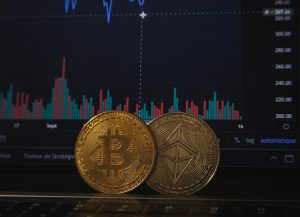Forex trading is a highly popular financial market that involves the buying and selling of currencies. As a forex trader, it is important to have a clear understanding of the market and the factors that drive its movements. This is where fundamental analysis comes in.
Fundamental analysis is a method of analyzing the financial and economic factors that influence the price of a currency. This includes factors such as interest rates, inflation, economic growth, political stability, and geopolitical events. By understanding these factors, traders can make informed decisions about when to buy or sell a currency.
In this article, we will explore how to use fundamental analysis in forex trading.
Step 1: Understand the Economic Calendar
The economic calendar is an important tool for forex traders. It lists all the major economic events and announcements that are scheduled to take place in the coming days or weeks. These events can have a significant impact on the forex market, as they often provide insights into the health of the economy or central bank policy changes.
Traders should pay close attention to events such as interest rate decisions, employment reports, and GDP releases. These events can lead to significant price movements in the currency markets.
Step 2: Analyze Economic Indicators
Economic indicators are statistics that provide insights into the health of the economy. They include measures such as inflation, GDP, and retail sales. By analyzing these indicators, traders can get a sense of the overall economic conditions that are driving the currency markets.
For example, if inflation is rising in a country, it may indicate that the central bank will raise interest rates to combat inflation. This can lead to a strengthening of the currency. Traders should pay close attention to economic indicators and how they impact the currency markets.
Step 3: Monitor Geopolitical Events
Geopolitical events can have a significant impact on the forex market. This includes events such as elections, wars, and natural disasters. These events can lead to increased volatility in the currency markets, as investors react to the news.
For example, if a country is facing political instability, it may lead to a weakening of the currency. Traders should keep a close eye on geopolitical events and how they impact the currency markets.
Step 4: Understand Central Bank Policy
Central banks play a critical role in the forex market. They are responsible for setting interest rates and implementing monetary policy. Traders should pay close attention to central bank policy, as it can have a significant impact on the currency markets.
For example, if a central bank is expected to raise interest rates, it can lead to a strengthening of the currency. Traders should keep a close eye on central bank policy and how it impacts the currency markets.
Step 5: Analyze Market Sentiment
Market sentiment refers to the overall attitude of traders towards a particular currency. This includes factors such as investor confidence, risk appetite, and market trends. Traders should pay close attention to market sentiment, as it can have a significant impact on the currency markets.
For example, if investors are optimistic about a particular currency, it can lead to a strengthening of the currency. Traders should analyze market sentiment and use it to inform their trading decisions.
Conclusion
Fundamental analysis is an important tool for forex traders. By understanding the economic and financial factors that drive the currency markets, traders can make informed decisions about when to buy or sell a currency. This includes paying close attention to economic indicators, monitoring geopolitical events, understanding central bank policy, and analyzing market sentiment. By using these tools, traders can increase their chances of success in the forex market.





